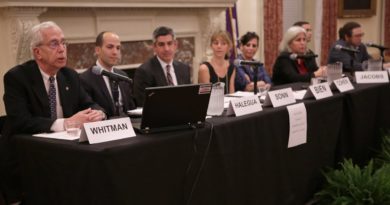NLRB General counsel Abruzzo calls for harsher remedies for noncompetes and stay or pay provisions that violate the NLRA
On October 7, 2024, the National Labor Relations Board’s (“NLRB” or the “Board”) General Counsel, Jennifer Abruzzo, released MEMORANDUM GC 25-01, titled “Remedying the Harmful Effects of Non-Compete and “Stay-or-Pay” Provisions that Violate the National Labor Relations Act.” GC Abruzzo states in the memo that she intends to urge the Board to find certain noncompetes unlawful and that certain “stay-or-pay” provisions – such as training repayment agreements, educational repayment contracts, and sign-on bonuses tied to a mandatory stay period – also infringe on employees Section 7 rights.
Noncompetes
As previously reported here, this is not the first time GC Abruzzo has targeted noncompetes. This memo is a continuation of a memo she wrote in May 2023, where she pledged to invalidate almost all post-employment agreements. The GC’s latest memo argues that many noncompete provisions “self-enforce” themselves, and employees may avoid other opportunities for fear of violating the contract. GC Abruzzo argues that noncompetes may have a harmful financial impact by limiting the employee’s job opportunities.
Stay-or-Pay Provisions
Similar to the arguments about noncompetes, the memo states that stay-or-pay provisions like those noted above restrict employee mobility and “increase employee fear of termination for engaging in activity protected by the Act” out of concern that termination would trigger the payment obligation. GC Abruzzo argues only those stay-or-pay clauses that are voluntary and that help recoup costs of optional benefits provided to employees should be allowed. She urges that any provision that requires employees to pay their employers if they leave employment voluntarily or involuntarily within a specified timeframe, is presumptively illegal. GC Abruzzo asserts that an employer can then rebut that presumption with a legitimate business interest and by proving the provision was narrowly tailored in that it: (1) was voluntary in exchange for a benefit, (2) had a reasonable and specific repayment amount, (3) had a reasonable stay period and (4) did not require payment if the employee was terminated without cause.
Remedies
GC Abruzzo suggests that make-whole relief for employees is proper when the Board finds that an employer has an unlawful noncompete provision. The memo states that simply removing the illegal provision is not enough and the goal should instead be to put employees in the same situation they would have been in without it. The memo argues that, for instance, if a person had to relocate outside their geographic region to find employment, they should be compensated. GC Abruzzo argues, in addressing the considerations for deciding on remedies, that employees who are subject to unlawful stay-or pay provisions or noncompetes should be able to show that they were deprived from better employment opportunities, and present evidence of financial harms. He recommends that the Board change its standard notice posting in order to ask employees for relevant information. The memo states that the employee must prove that 1) there was a job vacancy with a better pay package, 2) that they were qualified for the job, and 3) that they were discouraged from accepting or applying for the job due to the noncompete or the stay-or-pay provisions. GC Abruzzo states that if those elements are proven, the employer must compensate the employee for the difference (in terms of pay or benefits) between what they would have received and what they did receive during the same period.
Takeaways
GC Abruzzo states that she will grant employers a 60-day window beginning on October 7, 2024, to cure preexisting stay-or-pay provisions that advance a legitimate business interest. GC Abruzzo also states that she will exercise her prosecutorial discretion by declining to pursue cases where a preexisting stay-or-pay arrangement involved a tangible, transferrable benefit (such as an upfront cash payment such as a bonus or relocation stipend or payment for classes to obtain or maintain a credential), even if there is a question about whether the provision was entered into voluntarily, so long as any issues relating to the stay period, repayment amount, or repayment trigger are cured within the 60-day window.
Employers should stay updated on any future Board decisions related to noncompetes and stay-or-pay provisions. We will continue to track developments in this area.






